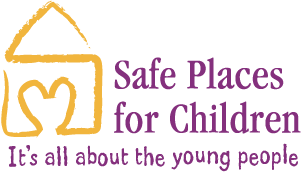Privacy Statement for Young People
Last Updated: 05.12.2024
1. Introduction
We make sure to deliver you individualised therapeutic care. To guarantee that our services are tailored to meet your needs and goals, we will need some of your personal information, like your likes and dislikes or any health issues you may have. Keeping your safety is our top priority and we will treat your privacy with utmost care and respect.
2. Collecting Information
We may collect and hold personal information about you, which may include:
Special category personal data; racial or ethnic, religious, physical and mental health and sexual orientation.
Contact information;
Name
Address
Contact details, including email address and telephone number
Date of birth and gender
Copies of identification documents
Marital status, next of kin, dependants, and emergency contact details
Bank account details
National Insurance Number
Information about your criminal record and offences
Information about your medical or health conditions
Employment arrangements and history;
Education details;
Disability
Emergency contact details;
Many other personal information required to engage you into the service.
We also value your input and your feedback regarding the therapeutic residential service you’re receiving. One way we collect information is through the Child Information Kit. There we explain what we will, wont and what we have to disclose to other people in order to make sure we are providing you effective support. We will explain this to you and make sure that you understand the content of the Children’s Guide.
We want to hear more about you and your interests. In the Child Information Kit, there’s a Pre-Placement Survey so that you can tell us more about yourself.
Of course, as much as possible, we want to ask your permission first in sharing with us some personal information. The Consent to Share Information Form will provide you more details about this. Another way we collect information is through your Care Map and other relevant plans like your Positive Behaviour Support Plan and Safety Plan. We have these documents to record how you respond to our care and how we can further personalise our services.
Other ways not listed above is asking for your input in meetings and your feedback with regards to the policies and documents we have. We want to ensure your participation in all aspects of your care.
3. Keeping Your Data Safe
3.1 Disclosure of Information
Under the UK GDPR and the UK DPA 2018, we have a legal reason to keep data and process it. When Safe Places for Children UK provides you with a service, we will process your data under legitimate interest or public task. We do this because we cannot provide a service to you without your personal information.
We share your data within Safe Places with people who need to see it to provide you with a service. We may also share it with the organisation that pays for your service or with external agencies in respect to our work with you. We may be required to share your data with other agencies for legal reasons (courts, police service, etc) or other organisations such as probation, etc.
There may be occasions when we will ask you for consent to use or share your data. If this is the case, we will explain exactly what your data will be used for. You can withdraw your consent at any time; however, there will be situations where we have the legal needs or grounds to share your information to keep you or others safe.
3.2 Storage and Access to Information
The data listed above is stored in a secure portal. We also have strict guidelines which requires all staff to protect your confidentiality and the confidentiality of your personal information. This can include not sharing passwords and not putting highly sensitive information in your Care Maps. We abide by the legislation with regards to how long we can keep your case records (75 years from the date of birth of the child, or if the child or young person dies before the age of 18, for 15 years from the date of their death) and how you can access your information.
Safe Places will keep your data for a specified period once we have finished working with you. Depending on the nature of the service and the legal obligations, children and young person’s case records.
Document - Records relating to children and young adults
Minimum Retention Period - 75 years from the date of birth of the child, or if the child or young person dies before the age of 18, for 15 years from the date of their death
Safe Places is sometimes required to transfer your data to the relevant authority who have commissioned us to provide your service or to another organisation providing you with a service. This process is undertaken in a confidential and safeguarding manner to ensure that your data is securely protected. You have the right to access your own personal information when you wish to do so. You can appoint someone to access your information on your behalf, this could be a parent, another adult, or a representative, such as an advocacy service, charity, or solicitor.
